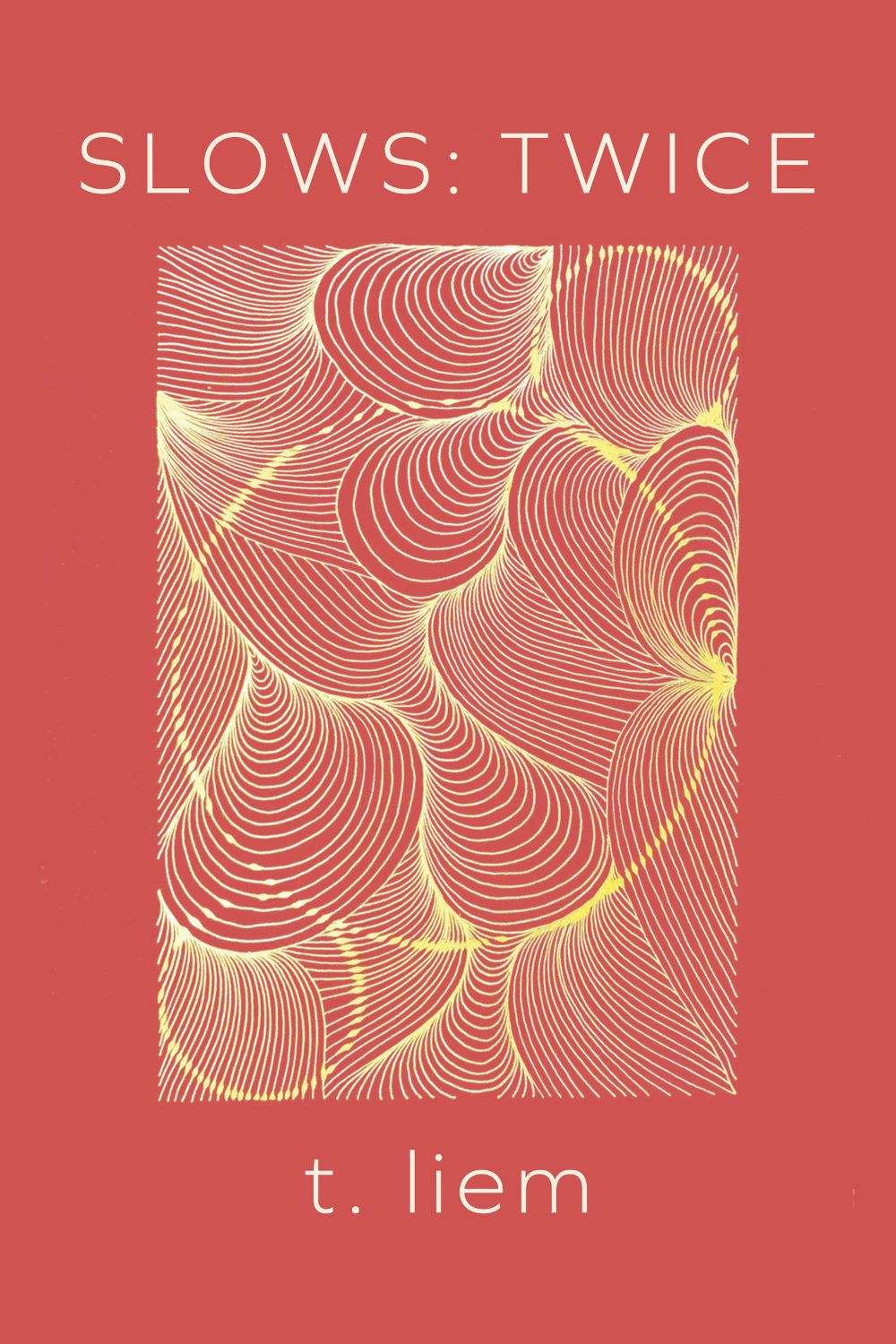Can contemporary poets maintain a sense of informality and inventiveness while expressing insight into the profound depths of the truth we so desperately yearn for? Can poetry reimagine sensibility while still being able to make sense? T. Liem’s latest book, Slows: Twice, walks on two stilts – one inviting the reader to question their most basic intuitions of what makes sense – and what breaks it. Its brilliance lies, in part, that it reflects something actual and emotionally resonant while challenging readers to aberrate their perceptions of how they view contemporary verse.

Slows is written like a kaleidoscope of any writer’s artistic process – the pacing hours, staring blankly out the window, bypassing commonsensical metaphors and tropes, with questions that should probably be left up to philosophers. Much like the poetic process, Liem’s poems are not a linear entelechy; they are an oscillating continuum, broken down into pieces and sizes, preserved and suspended in the mirror that reflects the past and future. The speaker visits their grandmother’s handwritten autobiography, intimate midnight moments when time is cradled still, and listens to strangers’s phone calls through the wall in an obscure Motel 6. Floating through unsleeping moments in time, penetrating the bark of incorruptible silence in moments of euphoric wonder – nothing is concealed.
Slows takes mirroring to a whole new level – the second half of the book mirrors the first half, as it rewrites all nineteen poems. By resembling each poem, not by accident, but by discovering hidden meaning through the fusion of mirroring and reflective lyricism. Some poems are inverted so as only to be able to be read in a mirror; others occupy the corners of the page, while some are composed like snippets of newspaper taped to a wall. Each poem in the collection has a corresponding poem that flows together, one creating tension, and the other release. Slows is not merely a collection of poems bound together by a common cover, but a series of interocular pieces which function as one continuous body. Liem vindicates these cadenced confessions with contemplations on longing, love, and eternity into a smooth-flowing continuum,; there is of course, no end, no beginning.

T. Liem, acclaimed author of “Obits” (published by Coach House in 2018), garnered recognition with a Lambda Literary Award shortlisting and the prestigious Gerald Lampert Memorial Award, along with the A.M. Klein Prize. Their written works have found a home in various publications such as Apogee, Plenitude, The Boston Review, Grain, Maisonneuve, Catapult, The Malahat Review, and The Fiddlehead, among others. An essay by Liem delving into family and the experience of growing up with Indonesian and British heritages, titled “Rice Cracker,” earned them the Constance Rooke Creative Nonfiction Prize in 2015.
Originally from Alberta, T. Liem now resides in Montreal, specifically in the unceded Kanien’kehá:ka territories known as Tio’Tia:ke.




